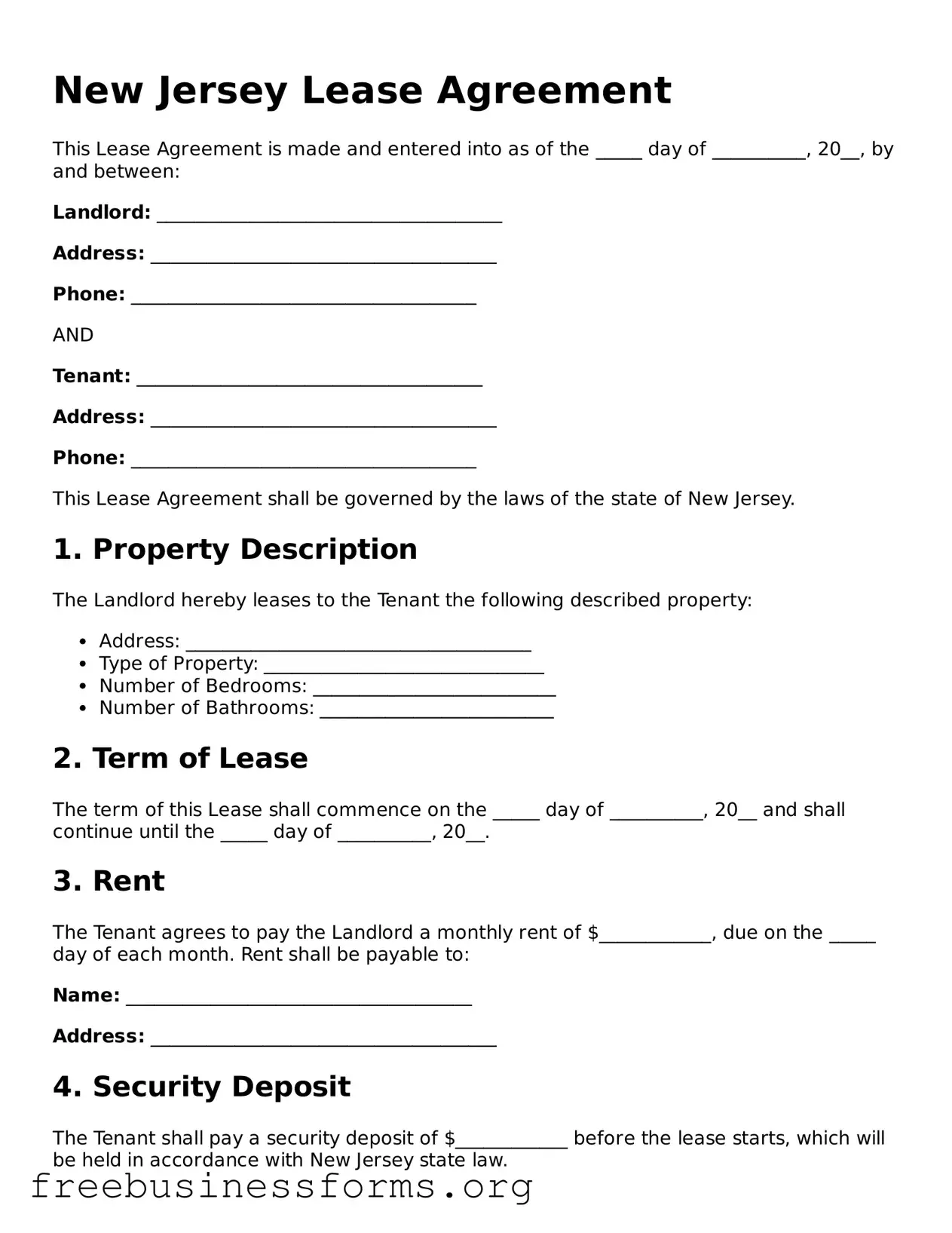Blank Lease Agreement Template for New Jersey
A New Jersey Lease Agreement form is a legal document that outlines the terms and conditions between a landlord and tenant for renting residential property. This form serves as a binding contract that protects the rights of both parties while detailing responsibilities regarding rent, maintenance, and property use. Understanding this agreement is essential for anyone involved in a rental arrangement in New Jersey.
Open Form Here

Blank Lease Agreement Template for New Jersey
Open Form Here

Open Form Here
or
↓ PDF File
Quickly complete this form online
Complete your Lease Agreement online quickly — edit, save, download.